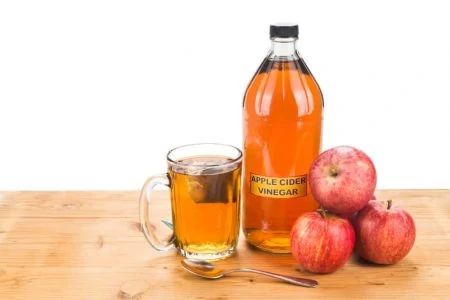Giving up your morning coffee or evening wine is one of the first sacrifices you make when you see that positive test. Naturally, many women turn to tea as a comforting, healthy alternative.
But is every cup safe for your baby?
While tea has plenty of perks, you might be surprised to learn that not all blends are created equal. Some herbs are fantastic for pregnancy, while others are best left on the shelf until after delivery.
We’ve brewed up everything you need to know about drinking tea while pregnant, including the benefits, the risks, and the best mugs to hug for the next nine months.
Key Takeaways
- Hydration helper: Tea helps you hit your fluid goals and can soothe nausea.
- Nutrient boost: Certain teas offer antioxidants and minerals vital for pregnancy.
- Watch the caffeine: Stick to the recommended limit of 200mg of caffeine per day.
- Check the label: Avoid unsafe ingredients like Dong Quai, Pennyroyal, and Blue Cohosh.
The Different Types of Tea
Tea is the most widely consumed beverage in the world. It’s deeply rooted in cultures across the globe, made by pouring boiling water over dried leaves, flowers, or roots.
While there are thousands of flavors on the market, they generally fall into two distinct categories:
- True Tea: For the purists, this is the only “real” tea. It comes exclusively from the Camellia sinensis plant. Varieties like green, black, white, and oolong are all processed from this same plant (1). These teas naturally contain caffeine, though decaf versions are available.
- Herbal Tea: These “tisanes” are made from a blend of roots, berries, flowers, and leaves from various other plants. They are naturally caffeine-free (with a few exceptions like Yerba Mate) and are often used for their medicinal properties.
Benefits of Drinking Tea During Pregnancy
swapping your latte for a tea bag comes with some solid perks for you and your baby:
1. It Helps Keep You Hydrated
Let’s be honest: drinking plain water all day gets boring. Plus, when your stomach is compressed and you’re running to the bathroom every 20 minutes, it’s easy to fall behind on hydration.
Unfortunately, dehydration during pregnancy is risky. Even a mild case can trigger common complaints such as:
- Digestion issues: Lack of fluids contributes to constipation.
- Physical drain: It worsens fatigue and headaches.
- Swelling: Surprisingly, drinking less water can lead to more water retention.
Take caution since highly caffeinated teas can have a diuretic effect, which means they can make you urinate more often and, in turn, cause dehydration if consumed in large amounts. Avoid brewing your tea for a long time since that can raise the caffeine level, and remember that black and oolong teas are known to contain the most caffeine. Herbal teas are mostly caffeine-free and tend to be better for hydration.
Editor's Note:
Dr. Njoud Jweihan, MD2. It Combats Morning Sickness
Morning sickness can make the first trimester feel impossible. You need something in your stomach to settle the nausea, but the thought of food makes you gag. It’s a cruel Catch-22.
Since the smell of coffee often becomes a major aversion, tea acts as a gentle substitute.
Ginger tea is the gold standard for soothing nausea. If hot liquids trigger your gag reflex, try pouring it over ice with a little pasteurized honey. Lemon balm and peppermint teas are also fantastic for settling a queasy stomach.
3. It Provides Antioxidants and Nutrients
Antioxidants are powerful substances that help protect your cells from damage caused by free radicals (2).
Why It Matters
Tea is just one way to get these heavy lifters into your system. Additionally, many teas contain small amounts of minerals like calcium, magnesium, and iron, which supports your immune system.
Some studies say that adding milk to your tea neutralizes many of its benefits, including its antioxidants and nutrients, so try to avoid adding milk, and add some flavor such as herbs or lemon instead (4). You should avoid tea bags since they are considered not as effective and beneficial as loose leaf tea.
Editor's Note:
Dr. Njoud Jweihan, MD4. It May Prepare Your Body for Labor
Some herbal teas are legendary in the birth community. Specifically, Red Raspberry Leaf tea is believed to tone the uterine muscles.
The theory is that a “toned” uterus can contract more efficiently, potentially shortening labor. While the science is mixed, many midwives recommend it in the later stages of pregnancy.
5. It Forces You to Relax
Never underestimate the power of a ritual. Pregnancy is stressful; you’re growing a human, planning a nursery, and managing hormones.
Sitting down with a warm mug forces you to pause, breathe, and slow down. If a cup of tea gives you ten minutes of peace, that mental health benefit is just as valuable as the physical ones.
Precautions When Drinking Tea While Pregnant
Before you raid the tea aisle, keep these safety tips in mind:
1. Watch the Caffeine Intake
True teas (black, green, oolong) contain caffeine. It crosses the placenta, and your baby’s developing metabolism can’t process it efficiently.
Current guidelines state that 200mg of caffeine per day is safe for most pregnant women. That is roughly two mugs of strong tea or one 12oz coffee. Always account for other sources of caffeine, like chocolate or soda, in your daily total.
2. Herbal Claims Are Not Regulated
The supplement industry, including herbal tea, is not strictly regulated by the FDA. This means the health claims on the box aren’t always backed by rigorous science.
Manufacturers often have to include a disclaimer (5).
Read The Fine Print
3. Some Ingredients Are Unsafe
Because herbs are “natural,” we assume they are safe. However, some herbs are potent medicines that can stimulate the uterus or affect hormones.
Generally, you should avoid teas containing these ingredients (6):
- PMS/Menstruation blends: These often contain Black or Blue Cohosh and Dong Quai, which can trigger contractions.
- Pennyroyal: Known to stimulate uterine contractions.
- Licorice Root: Large amounts can raise blood pressure.
- Goldenseal: May affect the placenta.
Chamomile is often debated; most experts agree a cup or two is fine, but medicinal doses should be avoided. When in doubt, stick to single-ingredient teas (like “100% Peppermint”) rather than complex proprietary blends.
4. Pesticides and Quality Control
Tea leaves are not washed before they are dried and bagged. If the tea was sprayed with pesticides, those chemicals end up in your cup. Studies have found varying levels of pesticides and heavy metals in non-organic teas.
Go Organic
How Much Caffeine Does Tea Have?
Compared to coffee, tea is gentle. An 8-ounce cup of coffee has about 95-165mg of caffeine. In contrast, tea typically ranges from 20 to 48mg (7).
Here is a quick breakdown:
- Black Tea: 40 to 75mg.
- Green Tea: 25 to 45mg.
- Decaf Tea: Less than 5mg.
- Herbal Tea: 0mg (usually).
While no study has definitively proven that low levels of caffeine cause harm, high intake has been linked to low birth weight and potentially miscarriage (8). Sticking to the 200mg limit keeps you in the safe zone.
The Best Teas to Drink During Pregnancy
Looking for a safe mug? Here are the top recommendations:
- Ginger Root Tea: The ultimate stomach soother. It helps with morning sickness, digestion, and bloating. Add a squeeze of fresh lemon for extra flavor.
- Peppermint Leaf Tea: Refreshing and caffeine-free. It’s great for nausea, though you should skip it if you suffer from intense pregnancy heartburn, as mint can relax the esophagus valve.
- Red Raspberry Leaf Tea: Known as “the woman’s herb.” It is rich in iron and calcium. Most providers suggest waiting until the second trimester to start drinking this to help tone the uterus for labor.
- Rooibos (Red Tea): A fantastic alternative to black tea. It has a similar robust, earthy flavor but is naturally caffeine-free and loaded with antioxidants.
- Lemon Balm Tea: Calming and mild, this is excellent for anxiety or pregnancy insomnia.
Avoid overindulging in drinking any kind of tea since some studies show it can limit the absorption of iron and folic acid, which are very important for your baby’s development. (9)
Editor's Note:
Dr. Njoud Jweihan, MDWhat About Nettle Tea?
Stinging nettle is a controversial topic in the pregnancy world. It’s often listed as an ingredient in “pregnancy teas” because it is incredibly nutrient-dense, high in iron, calcium, and magnesium.
However, the Natural Medicines Database rates it as “Likely Unsafe” for pregnancy. Why the discrepancy?
It likely comes down to the part of the plant used. Tea made from the leaves is generally considered safe and nutritious by herbalists. Tea made from the root, however, can impact uterine activity.
Since most commercial tea boxes don’t specify if they use the root or the leaf, and because medical databases take a conservative stance, we do not recommend nettle tea unless you are working directly with a knowledgeable herbalist or midwife.
Safety First
FAQs
The Bottom Line
Tea can be a wonderful addition to your pregnancy diet. It offers hydration, essential nutrients, and a much-needed moment of Zen in a chaotic day.
As long as you keep your caffeine intake under 200mg and avoid sketchy herbal blends with unsafe ingredients like Dong Quai, you can sip away with confidence. When in doubt, stick to the classics like ginger and peppermint, or opt for a nice organic Rooibos.












